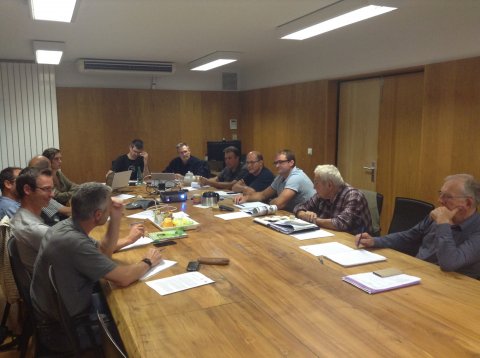The members of the French AFINET RAIN met for the first time on September 25th, 2017 at the Forestry Development Institute in Toulouse.
Fabien Balaguer (Innovation Broker for France) chaired the meeting with contributions from Philippe Van Lerberghe, from the Forestry Development Institute.
14 participants attended this first meeting, representing about 2/3 of the official RAIN members. The group included a wide diversity of stakeholders involved at the different stages of research and development in agroforestry, from species selection to economics.
A presentation of the project and its objectives was given as an introduction, after which participants were asked to identify bottlenecks/knowledge gaps and opportunities/constraints to agroforestry development in the area.
The discussions and exchanges between participants showed a real importance of the economic considerations (a lack of farmer-accessible cost-benefit analyses of commercial agroforestry farms, and a lack of short-term profitability of most of the systems currently promoted), and technical aspects (the need for more transfer of practical experiences and knowledge between farmers, advisors, researchers, etc.). Also, one of the biggest constraints identified was the lack (or complexity) of financial schemes to support farmers who decide to transition towards agroforestry in their initial investment with planting trees.
Today's agroforestry systems often lack short- and mid-term profitability to fully reach resource and space optimisation. At the same time, the French market for broad-leaved softwood is facing a deficit or expected to do so in the coming years. Thus, integrating those species into existing agroforestry systems could be a win-win strategy to help meet the market demand with high value products while improving the performances of existing farming systems (through diversified, highly profitable agroforestry). Poplar, a species with well-mastered growing techniques and well-structured market channels, could be an interesting "guinea-pig species" to try and unlock some of the bottlenecks identified. In addition, diversified poplar-based agroforestry systems could help break with the poor environmental image of poplar monoculture.
This will be one of the main tracks followed over the next steps of the project, with the aim of gathering technical/economic data on poplar agroforestry, to be used as a foundation for further developments and innovative trial settings.












